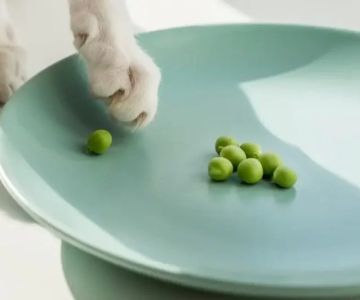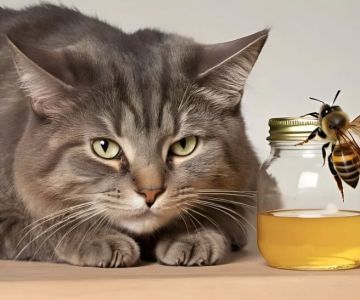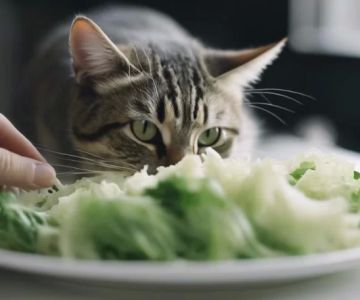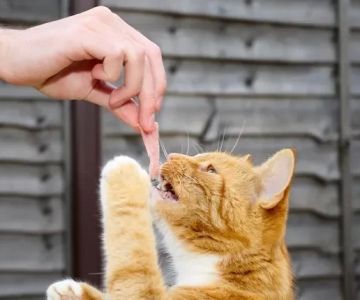- 1 - Can Cats Eat Lemon?
- 2 - Dangers of Lemons for Cats
- 3 - Why Cats Should Avoid Lemons
- 4 - Symptoms of Lemon Toxicity in Cats
- 5 - What to Do If Your Cat Eats Lemon
- 6 - Keeping Your Cat Safe from Toxic Foods
1. Can Cats Eat Lemon?
As a cat owner, you’ve probably wondered about the safety of certain foods for your feline companion. While cats are curious creatures, they often don’t have the same dietary needs or tolerance for foods that humans do. One food that raises questions is lemon. So, can cats eat lemon?
In short, no, cats should not eat lemon. Lemons, along with other citrus fruits, contain compounds that can be harmful to cats. These fruits are acidic and can cause digestive upset, along with more severe symptoms of toxicity if consumed in larger amounts.
2. Dangers of Lemons for Cats
Lemon contains several compounds, including citric acid, essential oils, and psoralens, all of which can be toxic to cats in varying degrees. While a small amount of lemon may not cause immediate harm, it’s best to avoid giving your cat lemon or any citrus fruit. The key dangers of lemons for cats include:
- Citric Acid: This acidic compound can cause gastrointestinal irritation, resulting in symptoms like vomiting, diarrhea, and abdominal pain.
- Essential Oils: The essential oils in lemon are concentrated and can lead to poisoning in cats. These oils can affect the central nervous system and cause symptoms such as drooling, lethargy, and confusion.
- Psoralens: Psoralens are compounds found in citrus fruits, and while they’re generally not dangerous to humans, they can be toxic to cats. These compounds can cause a range of issues, including liver damage and photosensitivity.
3. Why Cats Should Avoid Lemons
Unlike humans, cats are obligate carnivores, which means their digestive system is specifically designed to process meat, not fruits. Cats lack the enzymes necessary to properly digest plant matter, especially acidic foods like lemon. The digestive system of a cat isn’t equipped to handle the acidity in lemon, and this can cause discomfort and digestive problems.
In addition to the digestive issues, the essential oils found in lemon are potent and can cause toxicity even in small amounts. Cats are much more sensitive to these oils than humans, making them even more vulnerable to the harmful effects of lemon.
4. Symptoms of Lemon Toxicity in Cats
If your cat happens to ingest lemon, it’s important to be aware of the symptoms of lemon toxicity. These symptoms can vary depending on how much lemon your cat has consumed, but they generally include:
- Vomiting: One of the most common signs of toxicity after consuming lemon is vomiting, often accompanied by excessive drooling.
- Diarrhea: The acidity in lemon can irritate the digestive system, leading to diarrhea or loose stools.
- Lethargy: If your cat is feeling unwell due to lemon toxicity, they may become lethargic, weak, and less active than usual.
- Loss of Appetite: Cats that are suffering from digestive upset or poisoning may stop eating or refuse to drink water.
- Excessive Drooling: In some cases, cats may drool excessively after consuming lemon or citrus fruits due to irritation in their mouth and throat.
If you notice any of these symptoms after your cat has eaten lemon, it’s important to seek veterinary attention as soon as possible. In some cases, lemon toxicity can be serious and require prompt medical treatment.
5. What to Do If Your Cat Eats Lemon
If your cat has eaten lemon or any citrus fruit, the first step is to remain calm. In many cases, a small amount of lemon may only cause mild irritation. However, if your cat shows signs of toxicity or has ingested a larger amount, it’s important to take immediate action.
Here’s what you should do:
- Contact a Veterinarian: Call your vet or an emergency veterinary clinic for advice. They will be able to assess the situation and provide guidance on the next steps.
- Monitor Your Cat: Keep a close eye on your cat for any signs of illness. Watch for vomiting, diarrhea, drooling, or lethargy. If any of these symptoms worsen, get to a vet as soon as possible.
- Prevent Future Incidents: Ensure that lemons, citrus fruits, and other toxic foods are kept out of reach of your cat. This can help prevent future accidents and keep your cat safe.
6. Keeping Your Cat Safe from Toxic Foods
As a cat owner, it’s important to be aware of the foods that can be harmful to your feline friend. In addition to lemons, many common foods are toxic to cats. These include chocolate, onions, garlic, grapes, raisins, and alcohol. Always do your research before sharing food with your cat, and avoid feeding them anything that might be harmful to their health.
For more information on keeping your cat safe, or if you need guidance on the best products and services for your pet, visit Hidden Brook Veterinary for expert advice and recommendations.











